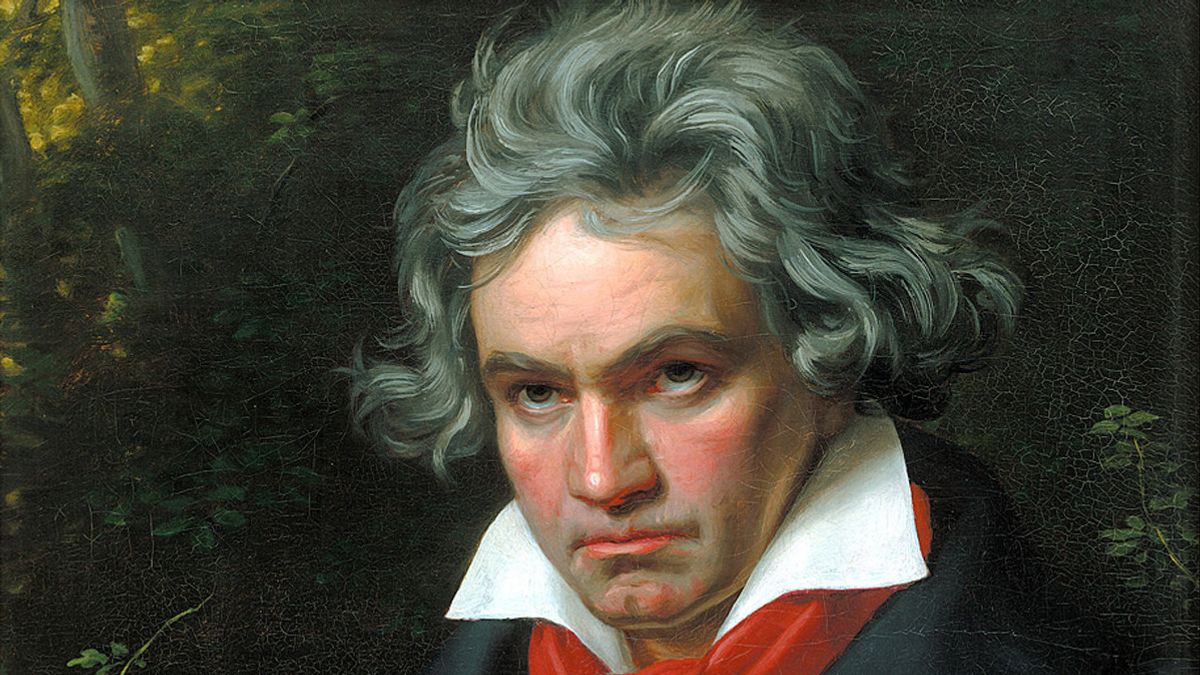JAKARTA - It may be that Ludwig van Beethoven is a composer of timeless classical music. However, like most people. His life path is not always smooth. In fact, Beethoven has arguably a lot of trouble. One of them is the steep path of love which makes him hit. A blow that even made him not marry until the end of his life.
As quoted by biography.com, March 26, 1778 will be Beethoven's first appearance. The stage is very special. Beethoven, who was then still seven years old, managed to look stunning. In fact, he managed to impress Maria Theresia, ruler of the Austrian House, which was then one of the most important kingdoms in Europe.
Little Beethoven, who later inherited Wolfgang Mozart's musicality, received his primary education at a Latin school called Tirocinium. In the regular school, Beethoven was judged as an ordinary student who had difficulty struggling with calculations and spelling words.
Some of his biographers suspect that the man who was born December 16 in the late 18th century was suffering from mild dyslexia, aka a learning disorder characterized by difficulty reading, writing, or spelling.
In 1781, when he was ten years old, Beethoven dropped out of school to focus on studying music full time with Christian Gottlob Neefe. Two years later, Beethoven published his first musical composition, a series of piano variations on a classic theme called Dressler.
Learn from Wolfgang and Haydn
Many say that Beethoven had met Mozart. However, that is only speculation and there is no proof. This happened when Beethoven expanded his musical knowledge to the capital city of Europe's cultural and musical center, Vienna in 1787.
There he hoped to meet and study with Mozart. Still according to biography.com, Mozart had heard about Beethoven. And Mozart once said "stay tuned for him, because one day he's going to give the world something to talk about."

After several weeks in Vienna, Beethoven learned that his mother had fallen ill. He then decided to return to his hometown, Bonn. There, Beethoven continued to carve out a reputation as the city's most promising young musician.
In 1792, Beethoven returned to Vienna. At that time Mozart had died. However, Mozart left a legacy in the form of a great composer named Joseph Haydn. After Mozart's death, Beethoven finally studied with Haydn in Vienna.
With Haydn, Beethoven studied piano. Meanwhile, in terms of vocals, he studied at Antonio Salieri and his rival, Johann Albrechtsberger. Before he became known as a composer, he developed a reputation as a pianist who was skilled in the field of improvisation.
During his lifetime, Beethoven's works can be divided into three periods: beginning, middle, and end. The early period can be seen when he composed songs until 1802. Later, the middle period can be classified in his work from 1802 to 1812.
And Beethoven's final period was a series of his works from 1812 until his death in 1827. During his lifetime, Beethoven composed nine symphonies, five piano concerts, one violin concert, 32 piano sonatas, 16 string quartets, and the opera Fidelio.
Heartbreak music
Moncer in the world of music, it turns out, cannot be used as a good judge in matters of romance. Beethoven, who was known to be shy during his life, never married. He was repeatedly rejected by his ideal woman.
Because it made an impression on him, the experience of that feeling was poured into the composition of the music Beethoven. In its history, Beethoven once loved a married woman named Antonie Brentano. In July 1812, he wrote her a long and beautiful love letter.
In the letter, he opened it with the words: For You, Beloved of My Century.
"My heart is full of so many things I want to tell you. There was a moment when I felt that words meant nothing at all ... Still, be happy, my only love," wrote Beethoven in the letter he never sent.
Before that, Beethoven was also noted to have loved a girl named Julie Guicciardi who came from the Brunsvik family. He once mentioned his love for Julie in a letter in November 1801.
The letter he sent through his childhood friend, Franz Wegeler. However, Beethoven was unable to marry her due to class differences. Later, Beethoven dedicated his feelings to the work Sonata No. 14 of hers. The work that is now known as the Moonlight Sonata.
Several years later, Beethoven also had a crush on a girl named Therese Malfatti. But he failed to propose to her. The outpouring of Beethoven's heart was then embodied in one of his most famous compositions entitled Fur Elise.
Beethoven's failure in love affairs is not the end of his life problems. During his heyday, he also experienced deafness. His deafness was revealed in a letter he sent to his friend Franz Wegeler in 1801.
"I have to admit that my life has been miserable. For almost two years I have stopped attending social activities simply because it is impossible for me to tell people that I am deaf. If I had another job, I might be able to overcome my weaknesses. However, in my profession me, this is a terrible flaw, "he wrote.
Even so, the various problems he experiences may be a trigger for him in making works. Beethoven died on March 26, 1827 at the age of 56 of liver disease. Even though he is gone, his work is eternal until now.
The English, Chinese, Japanese, Arabic, and French versions are automatically generated by the AI. So there may still be inaccuracies in translating, please always see Indonesian as our main language. (system supported by DigitalSiber.id)













